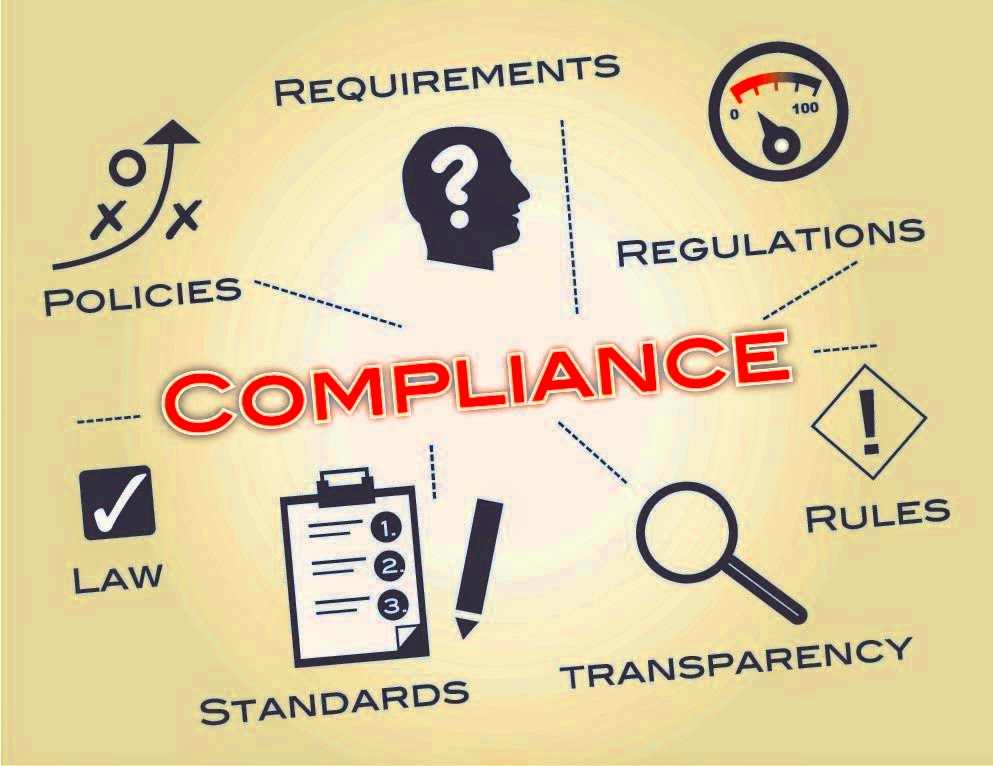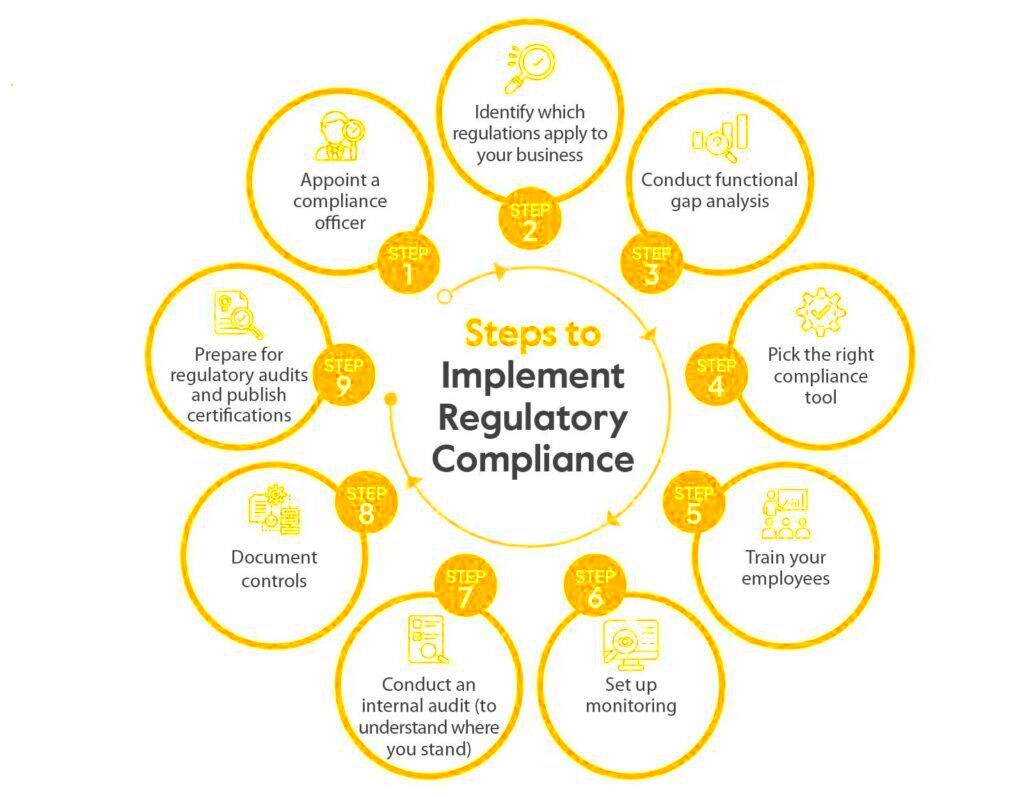Business Regulation and Compliance Enforcement in California
California, an active center of trade and commerce, nonetheless has complex regulatory frameworks which should be followed by all those who wish to carry out their businesses there. The state’s rules aim at fostering fairness among ventures, safeguarding customer interests as well as ensuring security of individuals. Knowledge about these laws is vital for every entrepreneur who hopes to prosper in such an atmosphere. We shall delve into crucial components of business regulations within this article; requirements for compliance; enforcement by state organizations etc.
Key Compliance Requirements for Businesses

To run a successful business in California, compliance with several requirements is mandatory. These areas are essential to look into:
- Business Licenses: Almost every business requires a license or permit to operate. This may vary by city and county.
- Tax Obligations: Businesses must register with the California Department of Tax and Fee Administration (CDTFA) to comply with sales tax and income tax requirements.
- Labor Laws: Adherence to California labor laws, including wage laws, workers’ compensation, and workplace safety regulations, is critical.
- Environmental Regulations: Many industries must comply with strict environmental laws to protect California’s diverse ecosystems.
- Consumer Protection Laws: Businesses must follow regulations that protect consumers, including truth in advertising and privacy laws.
Therefore, by being aware of such requirements, firms would not incur any expensive fines and will always have their credibility in the eyes of the regulatory agencies.
The Role of State Agencies in Enforcement

For instance, there are multiple state agencies in California tasked with upholding commercial regulations. Knowing what these bodies do will enable companies comply in a better way. This article will be discussing some major organizations:
| Agency | Role |
|---|---|
| California Department of Business Oversight (DBO) | Regulates financial services, including banks, credit unions, and investment firms. |
| California Environmental Protection Agency (CalEPA) | Oversees environmental laws to protect air and water quality. |
| California Division of Labor Standards Enforcement (DLSE) | Enforces labor laws and ensures fair workplace conditions. |
| California Department of Public Health (CDPH) | Ensures health and safety standards for businesses in the food and healthcare industries. |
It is essential for monitoring adherence and enforcing rules that these organizations perform. By knowing their duties, firms may take the initiative to regulate what they owe and avoid dangers.
Importance of Compliance Programs

It is imperative for businesses operating in California to establish a compliance program. These programs are essential in making sure that organizations fulfill their legal obligations while fostering a company’s culture of integrity and ethical behavior. Moreover, they help businesses manage all the complex regulations while protecting their image. Let us consider some of the reasons as to why compliance programs are important.
- Risk Management: Compliance programs identify potential risks early, allowing businesses to take preventive measures before issues escalate.
- Legal Protection: A robust compliance program can serve as a defense in legal disputes, demonstrating that a business is proactive about adhering to laws and regulations.
- Enhanced Reputation: Businesses that prioritize compliance are viewed more favorably by customers, investors, and regulators, boosting their reputation in the market.
- Employee Awareness: Compliance training helps employees understand their roles and responsibilities, fostering a workplace culture centered on ethical practices.
- Financial Savings: By avoiding fines and penalties associated with non-compliance, businesses can save significant amounts of money.
To conclude, strong compliance program is a business necessity that not only ensures avoidance of missteps but also aids in achieving operational effectiveness and longevity.
Consequences of Non-Compliance

Businesses are warned about the serious ramifications they will face if they fail to follow rules and regulations in California. Therefore, all organizations that want to stay relevant in their fields must understand these consequences very well. Neglecting compliance can result in the following:
- Financial Penalties: Businesses may face hefty fines or penalties imposed by regulatory authorities, which can significantly impact their bottom line.
- Legal Action: Non-compliance can lead to lawsuits, which not only drain financial resources but can also damage a business’s reputation.
- Operational Disruptions: Regulatory agencies may impose sanctions that halt operations, resulting in lost revenue and productivity.
- Loss of Licenses: Repeated violations can lead to the revocation of essential business licenses, making it impossible to operate legally.
- Damage to Reputation: A publicized compliance failure can tarnish a business’s reputation, leading to loss of customer trust and loyalty.
Heedless of it, the outcome for violation can be detrimental, hence it is important for enterprise to make this a priority in its regulations as a way of ensuring the longevity of the business.
Strategies for Ensuring Compliance
A successful way to make sure businesses run according to California’s regulations is through the use of viable procedures. The following are some recommendations that organizations may employ:
- Regular Training: Conduct regular compliance training sessions for employees to keep them informed about current regulations and company policies.
- Clear Policies: Develop and communicate clear policies outlining compliance expectations and procedures to employees at all levels.
- Compliance Audits: Conduct periodic audits to assess compliance levels and identify areas for improvement. This can help businesses stay ahead of potential issues.
- Designate a Compliance Officer: Appoint a dedicated compliance officer to oversee compliance initiatives and serve as a point of contact for regulatory inquiries.
- Stay Informed: Regularly monitor changes in regulations to ensure the business adapts promptly to any new compliance requirements.
The companies can develop strong bases for compliance, reduce risks, and build a corporate culture based on ethical conduct which benefits every party involved by implementing these strategies.
Recent Changes in Business Regulations
For any company that wants to prosper in California’s fluctuating market, it is crucial to remain informed about modifications in business regulations. In recent years, certain significant regulations have been modified which determine how companies run their operations. Such transformations can influence all aspects ranging from labor policies up to ecological requirements. Let us examine some of the greatest recent alterations that enterprises ought to be conscious of.
- AB 5 (2019): This law changed the way independent contractors are classified, making it harder for many workers to be classified as independent. This impacts how companies hire and manage their workforce.
- Minimum Wage Increases: California has been steadily increasing the minimum wage, with plans for further hikes in the coming years. Businesses must adjust their pay structures accordingly.
- Privacy Laws: The California Consumer Privacy Act (CCPA) introduced stringent requirements for how businesses collect, store, and use consumer data. Compliance with these privacy regulations is crucial to avoid penalties.
- Environmental Regulations: New laws aimed at reducing greenhouse gas emissions have been enacted, impacting various industries and encouraging businesses to adopt more sustainable practices.
- Remote Work Guidelines: As remote work becomes more prevalent, regulations regarding employee rights and obligations in remote settings have been clarified and strengthened.
By keeping a close watch on these alterations, businesses can stay within the framework of laws and dynamically change their behaviors according to freshly emerging rules and regulations.
Frequently Asked Questions
Numerous questions come up in relation to obedience to regulations by businesses. These comprise some questions that destroy the obscurity in crucial issues:
| Question | Answer |
|---|---|
| What is the purpose of compliance programs? | Compliance programs help businesses adhere to laws and regulations, reduce risks, and foster a culture of ethical behavior. |
| What are the penalties for non-compliance? | Penalties can include fines, legal action, operational disruptions, and reputational damage. |
| How can I stay updated on regulatory changes? | Subscribe to industry newsletters, attend workshops, and consult with legal advisors to stay informed about changes in regulations. |
| Do all businesses need a compliance program? | Yes, all businesses should have a compliance program tailored to their specific industry and regulatory requirements. |
In the event that you’re in California and have been struggling with the intricacies of business regulation and compliance, this FAQ section could be your answer.
Conclusion on Business Regulation and Compliance
To wrap it up, grasping the ins and outs of business regulation and compliance is a major key to triumph in the competitive terrain that is California. It is essential for businesses to prioritize compliance with established programs and updated laws. Compliance does not only save one from fines; they also build confidence in employees, customers among others hence sustaining them in the long run. There is a lot about what firms need to do if they would like to make changes in the way they operate by formulating good strategies, being abreast with what is happening around them when it comes to regulations as well as promoting a culture of adherence across their organization. Eventually, compliance means much more than sticking to rules; it’s all about making an improved responsible company for tomorrow’s hopes.


